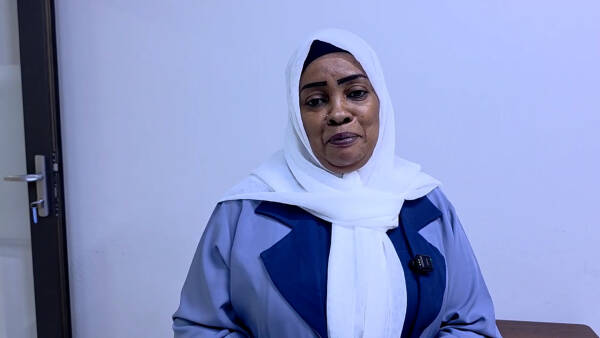Libyan and Sudanese women unite, their solidarity healing conflict wounds
By offering psychological and social support to displaced Sudanese women, Libyan women transformed shared suffering into powerful sisterhood, turning pain into solidarity that restores hope amid chaos and forced displacement.

Mona Touka
Libya — Amid the pain of conflict and the sounds of displacement, stories of human solidarity shine like small lights in great darkness. Over two years of conflict in Sudan, women bore the heaviest burdens: violations, assaults, and harsh displacement that shattered families and destabilized communities. Yet, on the other side of the border, in southern Libya, many Sudanese women found in Libyan women both support and a humanitarian, sisterly bond, despite limited resources and difficult conditions.
In Sebha, which has become a major gathering point for displaced Sudanese, Libyan women-led initiatives emerged, driven by a sense of responsibility and sisterhood, providing psychological and social support to Sudanese women.
"Libyan Women Embraced the Displaced"
Khadija Kanai, a civil activist, says, “Since the arrival of Sudanese displaced persons in the city, particularly in the Tayouri area, we saw the urgent need for humanitarian support, especially for women. Many were pregnant, divorced, widowed, or students forced to leave their studies due to the war. Therefore, we sought to provide medical and psychological services, as psychological support at that stage is more important than any material aid.”
She describes the first meetings with the displaced women as deeply moving: “We tried to reassure them that they were at home and among family, despite the modest resources. What we offered may not have been large, but it was sincere. The women of Sebha, whether from the Women’s Union, civil society organizations, or ordinary citizens, tried to be of help. When a woman supports another woman, she understands her pain and her responsibilities as a mother, sister, and wife.”
Khadija Kanai addresses a heartfelt message to the Sudanese women: “Even if we fell short, we are always with you. We too have experienced war and crises, and we know the meaning of loss and displacement. Remain resilient as we know you to be, and know that in Libya there are sisters who stood by you and supported you, even in small ways. We welcomed you on our land with open hearts, and we wish you a safe return to your homeland.

"Libyan Women Welcomed Sudanese Women in Support and Training Centers"
Ruqayya Daw, a journalist and civil activist from Sebha, emphasizes that support for Sudanese women was not merely temporary sympathy, but manifested in tangible, institutional initiatives. She explains: “From the onset of the displacement, several initiatives and centers were launched to support the Sudanese community in Sebha, such as the ‘You Are Home’ Center and the ‘My Home’ Center, where women were welcomed and involved in awareness-raising, motivational programs, and stress-relief courses.”
She added that some Sudanese women were empowered to work and find housing: “We helped some secure jobs in clinics and private and public schools. They are strong women with experience. Today, we see many Sudanese women working alongside Libyan women in Sebha, which reflects mutual respect and integration.”
Regarding solidarity, she says: “As Libyan women standing with our sisters in Sudan, we condemn the violations women there face and wish them victory and peace

"Psychological Relief and Handicrafts… A Path to Recovery"
Hiba Al-Ghoul, a trainer from southern Libya, believes that supporting Sudanese women requires continuity in psychological and social programs. She explains: “Support is not limited to material aid; it must also be moral, through seminars, discussion sessions, and training courses. In the south, we organize ongoing activities for women, including sewing and handicraft workshops, to help them integrate and express themselves.”
She emphasizes the importance of interactive sessions that allow Sudanese women to release their inner pressures: “We try to create an environment that combines psychological comfort and recreation, helping women move from the atmosphere of war and grief to one of participation and engagement. This type of support restores psychological balance and brings hope.

"Psychological Relief and Handicrafts… A Path to Recovery"
Hiba Al-Ghoul, a trainer from southern Libya, believes that supporting Sudanese women requires continuity in psychological and social programs. She explains: “Support is not limited to material aid; it must also be moral, through seminars, discussion sessions, and training courses. In the south, we organize ongoing activities for women, including sewing and handicraft workshops, to help them integrate and express themselves.”
She emphasizes the importance of interactive sessions that allow Sudanese women to release their inner pressures: “We try to create an environment that combines psychological comfort and recreation, helping women move from the atmosphere of war and grief to one of participation and engagement. This type of support restores psychological balance and brings hope.
